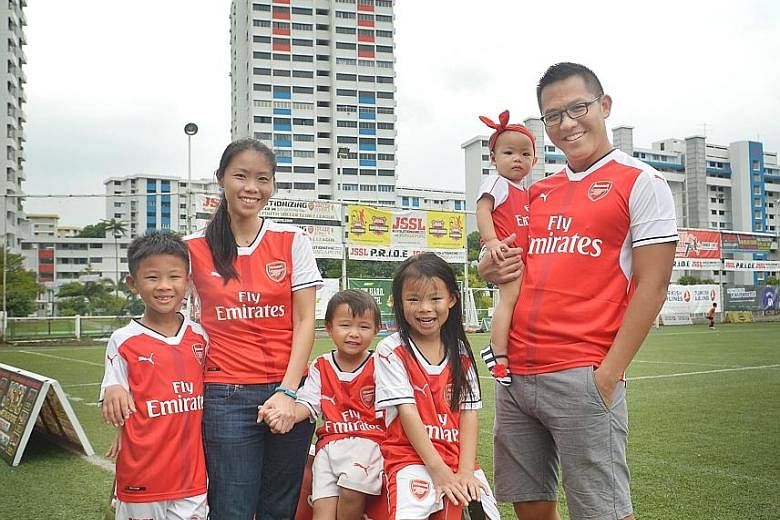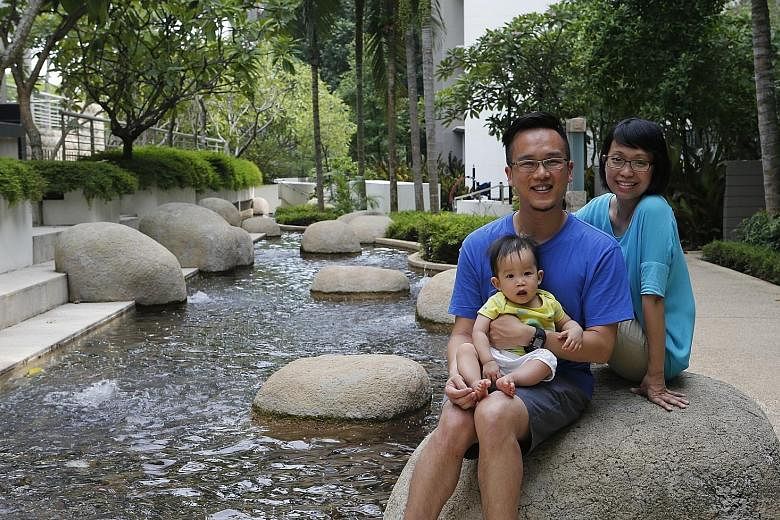The supposedly mild sheep has pummelled the most powerful beast in the Chinese zodiac calendar.
A mix of factors - the SG50 feel-good factor, more parental perks, and demographics - resulted in a bumper crop of Singaporean babies in 2015, the Year of the Sheep.
There were 33,725 citizen births, the highest number in the last 13 years, according to population figures released last week.
It eclipsed even the 33,238 births in 2012 - a dragon year which some Chinese consider to be the most auspicious, believing that those born under the sign would embody the creature's traits of dominance and intelligence. This is the first time in about two decades that the number of dragon babies has been overshadowed by those born in other years, based on available population statistics.
Ryker Jedd Ng was born just as the clock struck 12 on Aug 9 last year - the moment Singapore turned 50.
"We were in disbelief," said his mother Angeline Lim, 35.
One obvious reason to reach out for is the celebratory mood over Singapore's jubilee and the attendant enhanced parental perks on offer. But sociologists say demographics also played a large part.
"It could be because children of baby boomers are hitting about 30 years of age, which is the median age of citizen mothers at first birth," said National University of Singapore sociology professor Tan Ern Ser. "It is possible that the children of baby boomers may keep this up for the next decade, but that is subject to the economic climate."
Malays and Indians were more productive. The total fertility rate (TFR) for Malays increased from 1.73 in 2014 to 1.79 and that for Indians went from 1.13 to 1.15.
The TFR for Chinese declined from 1.13 to 1.10.
This pulled the overall TFR down a notch, from 1.25 to 1.24. The replacement TFR - which is when a population can replace itself - is 2.1.
Ms Kasthuri Davaraj, 28, had a son last May and is planning to try for another this year. "We have been married for two years so we felt the time was right to have a baby and we want to have a two-year gap for the next one," said the teacher.
The hope is that the trend will continue.
According to the Population in Brief 2016 report, Singapore will see larger cohorts of citizens approaching the peak marriage and parenthood ages over the next few years. Many are children of post-war baby boomers.
Already, last year saw 480,900 Singapore citizens in the age group of 20 to 29, a jump from 432,300 a decade earlier.
The Government's enticements may also be bearing some fruit.
Singapore began tackling its dearth of births in 1987 and over the years has offered, among other things, tax rebates, baby bonuses, priority in getting bigger HDB flats and subsidies at specified childcare centres.
Last year, significant perks were also proffered. They included a doubling of the one-week paternity leave and an extra $2,000 in baby bonus. Singaporean babies born last year also received a special birth certificate and gift set. Insurers jumped in to offer the newborns free health insurance.
Ms Joanne Sng, 34, who had her fourth child last September, said: "The parenthood benefits have increased quite a bit since we had our first child in 2008. The introduction of the paternity leave is especially appreciated."
While noting that incentives are not the paramount factors for parents in deciding to have children, parenting coach Chong Ee Jay, 37, whose wife gave birth to a son in September last year, said more support throughout the children's growing years would help.
Dr Kang Soon-Hock, head of the social science core at SIM University, thinks that there may be a possible "mindset change" among young Singaporeans who are starting to embrace parenthood.
"Previous Marriage and Parenthood packages have laid the groundwork and it is now showing results."
The outpouring of sentiments and discussions over Singapore's 50th birthday could also have helped.Dr Mathew Mathews, senior research fellow at the Institute of Policy Studies, said: "I don't think people go out of their way to have a child just to be part of SG50 or to get a goodie bag."
He said that SG50 could have offered the final push to those who might otherwise have just waited.
Already, there is a very Singaporean concern coming to the fore. Some parents are concerned that their children being born last year could mean stiffer competition down the road.
"One consideration we had in planning for a baby last year was that the Year of the Sheep is usually not popular with Chinese families," said research and development engineer Jeremy Gan, 32, whose daughter was born in May last year.
"We thought she would not have to face as much competition in school but we couldn't be more wrong."



